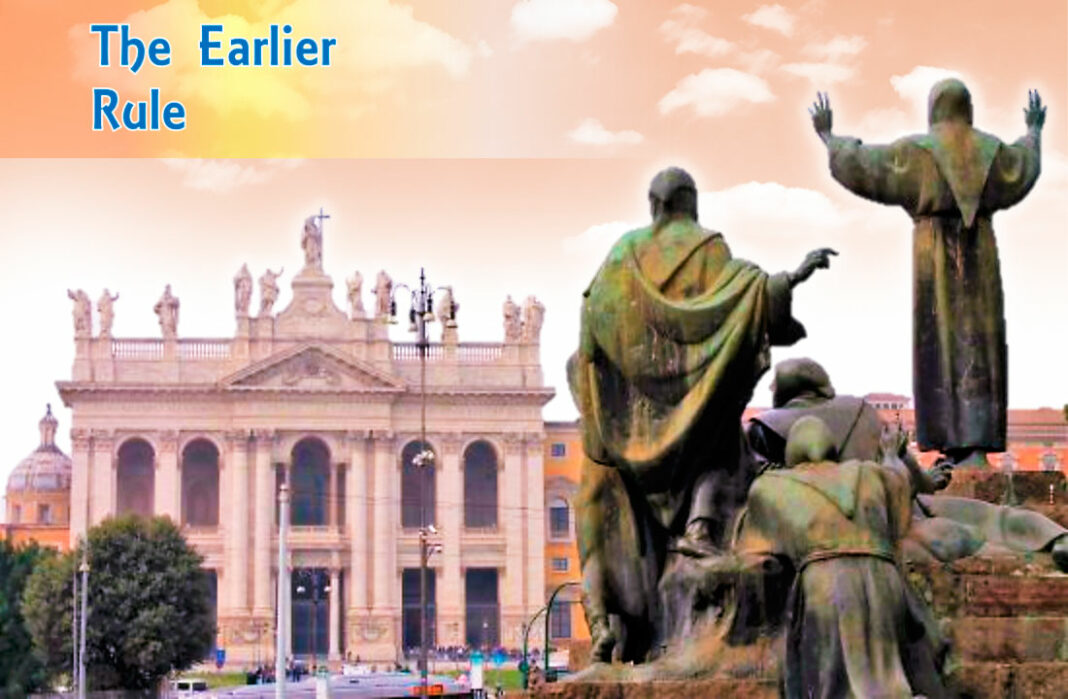St. Francis wrote in Chapter XIX of the Earlier Rule:
Let all the brothers be, live, and speak as Catholics (Earlier Rule XIX, 1; FF 51).
We could say that St. Francis of Assisi not only made a decisive ecclesiastical choice, he consciously and specifically made a choice of catholicity[1].
Francis consciously chose to live as a Minor in the bosom of the Church and evangelize the world from there. What can this chapter from the Earlier Rule tell us today?
St. Francis did not choose to stay in the Church because of how holy and immaculate its members were, or because the Church at the time was the best institutional model. Francis stayed in the Church for Christ. The Poverello of Assisi teaches us that our belonging to the Church is founded upon our faith in Jesus Christ; a faith that is nourished by listening, living and proclaiming the Word, sustained by the sacramental life.
We cannot be content with just being baptized as Catholics and leaving it at that. We must live, act and speak as Catholics. After eight hundred years, Francis is calling us to rediscover our Catholic roots, to value our faith, our traditions, to return to the sacramental life by virtue of the love of Christ[2].
St. Francis knew that our life could only be lived in ecclesial fraternity. We know that a lone wolf dies alone when winter falls and that one single swallow does not signal springtime. We are not islands, we are a universal fraternity; we are brothers.
Therefore, how do we live our being Church? Are we mere spectators or do we feel part of the ecclesial fraternity—despite its limitations?
Francis wrote:
And the Lord gave me such faith in churches that I would pray with simplicity in this way and say: ‘We adore You, Lord Jesus Christ, in all Your churches throughout the whole world and we bless You because by Your holy cross You have redeemed the world’[3].
We will return to this topic when we touch on Chapter XXIII of the Earlier Rule.
Until our next reflection, my dear reader[4].
Friar Elio J. ROJAS
[1] C. Vaiani, La via di Francesco, Milano 2008, 117.
[2] Idem. 120.
[3] Cf. Testament 4-10; FF 111-113.
[4] We recommend reading: A. Pompei, Eclesiología Franciscana, in Manual de teología franciscana, various authors, Madrid 2004, 198-250.



















